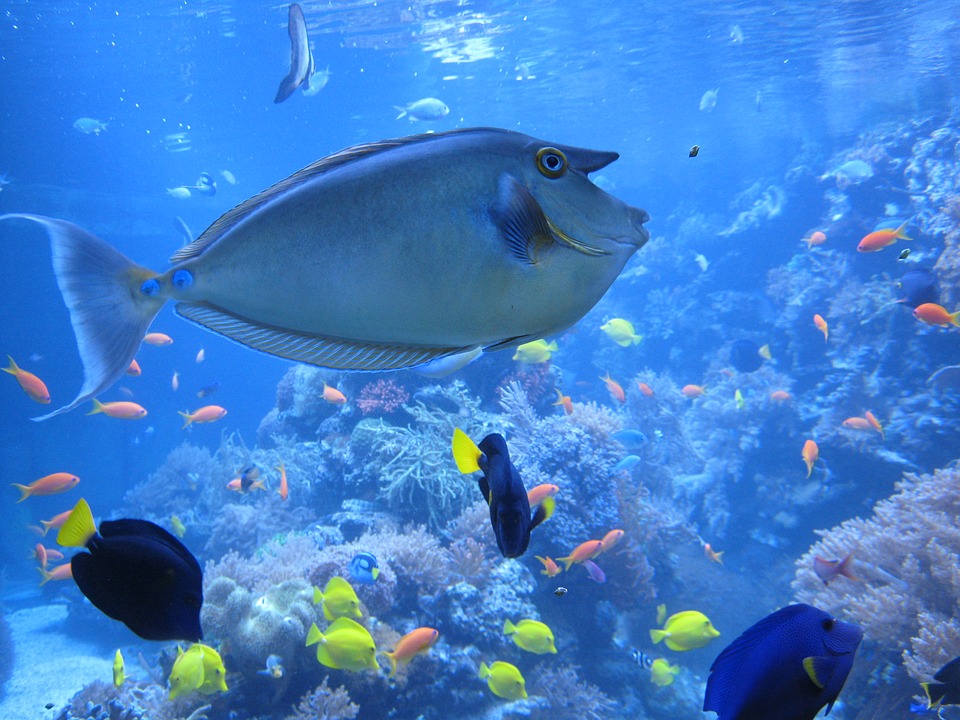This week is (Save The) Sea Week, an annual celebration of our oceans and a reminder that they need our help. Last week, anti-whaling group Sea Shepherd reported that Japan’s use of military-grade technology to track its ships has ended its attempts to stop the Southern Ocean whale hunt. For the past 12 years, the activist group’s ships have confronted the Japanese whaling fleet in a bid to limit its ability to conduct what the country calls scientific whaling, but this is no longer possible.

As many as 2.7 trillion animals are pulled from the ocean each year. Scientists estimate that as many as 650,000 whales, dolphins and seals are killed every year by fishing vessels and 75% of the world’s fisheries are exploited or depleted. Sadly by 2050 our oceans will be more plastic than fish and by 2048 we could have fishless oceans!
The seas and their inhabitants need us to take action, and this week is the perfect excuse to do so. Here are our top tips to help you sail through this Sea Week and seas the day, everyday:
Reduce your carbon footprint
Global warming is destroying our reefs and altering the ecosystem, endangering the lives of many sea creatures. The most significant way to reduce your carbon footprint is to adopt a plant-based diet, but do the obvious things too: cycle or walk rather than drive, turn off electrical appliances, turn down the thermostat. Avoid eating sea life. Global fish populations are rapidly being depleted due to demand, loss of habitat and unsustainable fishing practices. Try Linda McCartney’s scampi bites or Quorn fishless fingers for a sustainable fishy meal which will save the lives of our ocean friends.

Ditch single-use plastic
Plastic kills hundreds of thousands of sea creatures every year; an estimated 100,000 marine animals unintentionally consume plastic every single year. Studies have found that 71% of seabirds and 30% of turtles ingest plastic and this greatly increases an animal’s mortality rate.
Invest in reusable water bottles, take-out cups, and quit buying food wrapped in unnecessary plastic. If you do have to buy plastic, recycle or reuse what you can.
Clean up your beaches
Never leave trash on a beach, and try ‘taking three for the sea’ – every time you’re by the ocean, pick up the waste that you spot and dispose of it properly so that it doesn’t end up in the sea.

Don’t Buy Items That Exploit Marine Life
Certain products that you might see in tourist shops harm coral reefs and marine populations. Avoid purchasing items such as coral jewellery, tortoiseshell hair accessories (made from hawksbill turtles), and shark products.
Be an Ocean-Friendly Pet Owner
Read pet food labels and consider seafood sustainability when choosing a diet for your pet. Never flush cat litter away as it can contain pathogens harmful to marine life. Avoid stocking your aquarium with wild-caught saltwater fish and never release any aquarium fish into the ocean or other bodies of water, because this can introduce non-native species harmful to the existing ecosystem.

Support Organisations Working to Protect the Ocean
Many organisations are fighting to protect ocean habitats and marine wildlife, such as Oceana. Find an organisation that you like, then donate if you have some spare cash, or volunteer for hands-on work or advocacy. If you live near the coast, join a local group and get involved in projects close to home.
Travel the Ocean Responsibly
Practice responsible boating, kayaking, and other recreational activities on the water. Never throw waste overboard, and be aware of marine life in the waters around you. If you’re set on taking a cruise for your next holiday, do some research to find the most eco-friendly option.

Use less fertiliser
When fertilisers are used in gardening and agriculture, the excess eventually ends up in the ocean. This can result in a “dead zone” — an area with very low levels of oxygen in the water — the size of New Jersey in the Gulf of Mexico during the spring and summer. Since all species of marine life require oxygen to live, they must flee the area or die.
There’s so much that you can do to have a huge impact in protecting the oceans – why not start making waves this week?


